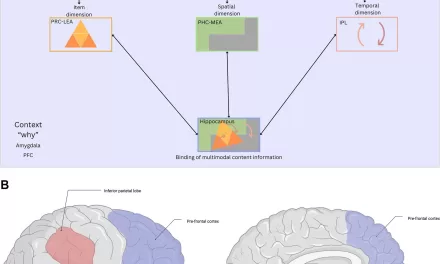A recent study published in the journal Fertility and Sterility has revealed a significant link between polycystic ovary syndrome (PCOS) and disordered eating behaviors, particularly emotional and uncontrolled eating, among middle-aged women. This research, conducted by the University of Oulu and ODL Sports Clinic, sheds new light on the psychological challenges faced by women with PCOS as they age.
PCOS, a common hormonal disorder affecting women of reproductive age, is characterized by irregular menstrual cycles, excessive production of male hormones, and polycystic ovaries. While previous studies have primarily focused on the reproductive years, showing that young women with PCOS are up to three times more likely to develop binge-eating disorders due to body dissatisfaction, this new study extends the understanding of disordered eating into middle age.
Psychological Distress a Key Factor
The study, led by Professor Terhi Piltonen, involved nearly 1,200 participants from the Northern Finland Birth Cohort 1966, including 251 women with PCOS. The participants completed a questionnaire assessing their eating behaviors at the age of 46, with the study examining risk factors for disordered eating at ages 31 and 46. The findings revealed that women with PCOS were at a higher risk of developing emotional and uncontrolled eating behaviors, particularly if they had a history of psychological distress such as depression and anxiety, or if they had attempted to lose weight in the past.
“Weight control is often central to managing PCOS, but without appropriate support, drastic weight-loss methods can sometimes lead to eating disorders,” said Emilia Pesonen, a Doctoral Researcher involved in the study. “Weight-related stigma, especially in healthcare settings, can exacerbate this issue.”
Weight stigma, which refers to the prejudices and discrimination overweight individuals face, was identified as a contributing factor to the development of disordered eating behaviors. According to Pesonen, these stigmas often result in inadequate care, further complicating the management of PCOS.
Need for Comprehensive Care
Professor Piltonen emphasized the importance of offering comprehensive healthcare that considers both the physical and psychological aspects of PCOS. “Healthcare providers should actively inquire about disordered eating behaviors in women with PCOS and refer them for further treatment when necessary,” Piltonen stated. She also noted that obesity medications, which may help address the disrupted satiety hormone function observed in women with PCOS, should be considered part of the treatment plan.
The research underscores the need for a holistic approach to PCOS management, one that not only addresses physical symptoms but also pays close attention to the mental health challenges faced by these women.
The implications of this study are far-reaching, especially as more women with PCOS enter midlife. By identifying the risks of disordered eating and addressing psychological distress early on, healthcare providers can better support women in managing their condition and improving their quality of life.
For more details, the study by Emilia Pesonen and colleagues can be found in Fertility and Sterility under the title “Women with PCOS are at risk for emotional and uncontrolled eating at midlife: a population-based cohort study” (DOI: 10.1016/j.fertnstert.2024.09.042).











